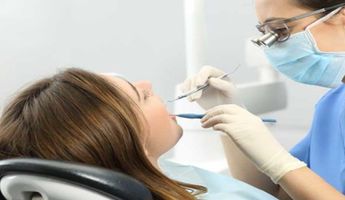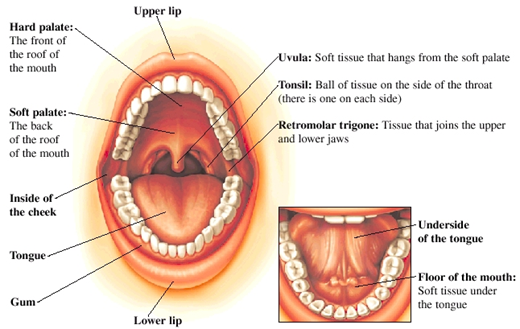Oral Cancer Treatment in Lebanon
Search and Compare the Best Clinics and Doctors at the Lowest Prices for Oral Cancer Treatment in Lebanon

Find the best clinics for Oral Cancer Treatment in Lebanon
No clinics available
India offers the best prices Worldwide
Price: $ 34

- Home
- Lebanon
WHY US?
At Medijump, we're making medical easy. You can search, compare, discuss, and book your medical all in one place. We open the door to the best medical providers worldwide, saving you time and energy along the way, and it's all for FREE, no hidden fees, and no price markups guaranteed. So what are you waiting for?

Free

Best Price

Widest Selection

Risk-Free
What you need to know about Oral Cancer Treatment in Lebanon

Oral cancer can affect parts of your mouth such as the lips, teeth, gums, and the roof of the mouth. It can be life-threatening if not treated early and the options include surgery, radiation therapy, chemotherapy, immunotherapy, and targeted drug therapy. You may undergo one type of treatment or you may need to have a combination of treatments, depending on what stage your cancer is at and the location, your general health, and personal preferences.
What does a Oral Cancer Treatment Procedure Involve?
If you need to undergo surgery, you will be given a general anesthetic and the cancerous growth will be removed, afterward, you will be treated with radiation therapy which uses high-energy beams that kill cancer cells or you may have chemotherapy which uses chemicals to kill the cells. Your doctor may also suggest targeted drug therapy, which alters specific aspects of cancer cells that fuel their growth. When you have advanced oral cancer, you may need immunotherapy, which uses your immune system to fight the cells.
How Long Should I Stay in Lebanon for a Oral Cancer Treatment Procedure?
The type of treatment that you undergo will determine the length of stay in Lebanon. If you undergo surgery, you should stay for at least 7 to 14 days. If you have therapy, your length of stay depends on how many cycles are required for your specific case.
What's the Recovery Time for Oral Cancer Treatment Procedures in Lebanon?
Recovery from oral cancer will take a significant amount of time and you will need to rest completely for 4 weeks, but you should be able to go back to work within 6 to 8 weeks.
What sort of Aftercare is Required for Oral Cancer Treatment Procedures in Lebanon?
After surgery, you may need a tube to help you eat, which may be inserted into your stomach. Rehabilitation is also important if you have advanced cancer, which includes speech therapy. You also need to schedule follow-up appointments with your local doctor so they can monitor your condition and progress.
What's the Success Rate of Oral Cancer Treatment Procedures in Lebanon?
The success rate for oral cancer treatment depends on how early the patient gets treated. Those who are treated early can have over 83% survival rates. Surgery carries risks of infection, bleeding, as well as changing the way you speak eat and swallow. Therapy also has side effects, such as mouth ulcers, stiff jaw, loss of appetite, loss of taste, hair loss, diarrhea, and headache.
Are there Alternatives to Oral Cancer Treatment Procedures in Lebanon?
The alternatives are watching your nutrition and keeping your mouth healthy, but you still need treatment to treat cancer. If you have mouth issues that could turn into cancer or if the cancer is in its earliest stage, you can undergo photodynamic therapy (PDT).
What Should You Expect Before and After the Procedure
After oral cancer treatment, the risk of your oral cancer spreading to other body parts is reduced and you should no longer feel any symptoms that the disease caused. There is also a good chance that the cancer is cured, so it will not come back.
Whilst the information presented here has been accurately sourced and verified by a medical professional for its accuracy, it is still advised to consult with your doctor before pursuing a medical treatment at one of the listed medical providers
No Time?
Tell us what you're looking for and we'll reachout to the top clinics all at once
Enquire Now

Popular Procedures in Lebanon
Prices Start From $2,487

Prices Start From $39

Prices Start From $2,487

Prices Start From $2,487

Recommended Medical Centers in Lebanon for procedures similar to Oral Cancer Treatment

- Interpreter services
- Translation service
- Religious facilities
- Medical records transfer
- Medical travel insurance
- Health insurance coordination
- TV in the room
- Safe in the room
- Phone in the room
- Private rooms for patients available

- Interpreter services
- Translation service
- Religious facilities
- Medical records transfer
- Medical travel insurance
- Health insurance coordination
- TV in the room
- Safe in the room
- Phone in the room
- Private rooms for patients available

- Interpreter services
- Translation service
- Religious facilities
- Medical records transfer
- Medical travel insurance
- Health insurance coordination
- TV in the room
- Safe in the room
- Phone in the room
- Private rooms for patients available

- Interpreter services
- Translation service
- Religious facilities
- Medical records transfer
- Medical travel insurance
- Health insurance coordination
- TV in the room
- Safe in the room
- Phone in the room
- Private rooms for patients available
Oral Cancer Treatment in and around Lebanon
Lebanon, a country on the eastern shore of the Mediterranean Sea, is one of the smallest sovereign states. The country boasts a fascinating mixture of the Middle East and the West, Christianity, and Islam, and tradition and modernity. It has everything from golden beaches and World Heritage Sites to energetic nightlife and delicious cuisine. Among other countries in the Middle East, Lebanon appears to be one of the most popular medical tourism destinations. Over 10% of the tourists visiting the country, particularly from neighboring countries, come to receive medical care. Many hospitals and clinics in the country are accredited to the ISO:9000 standard and offer world-class specialist services in spine treatment, orthopedics, organ transplant, and other complex surgeries, as well as advanced cancer treatments. Cosmetic and reconstructive surgery are also popular.
Popular Parts of Lebanon
Beirut, the capital and largest city of Lebanon, is filled with historic landmarks and natural wonders. The most famous attractions in the city are the National Museum of Beirut, the Corniche and Pigeon Rocks, Sursock Museum, and Mohammed Al Amin Mosque. Many people also come to Lebanon to visit the port town of Sidon. Once a rich and thriving Phoenician city, it is dotted with historical monuments and ancient remnants, particularly in its Old City. Other popular cities include Tripoly, Baalbek, Byblos, and Tyre.
Weather and Climate in Lebanon
Lebanon has four seasons: winter (December to March), spring (April to May), summer (June to September), and autumn (October to November). Winter is the rainy season with high precipitation levels and cool temperatures. It is snowy in the mountains, but in some places, such as Beirut, it just rains during this season. Summer is hot, sunny, and dry, and can get very humid in cities located close to the sea. In the summer, the average temperatures are around 28°C to 30°C. Spring and autumn are both warm and pleasant.
Getting around in Lebanon
The main international airport where visitors fly into and out of Lebanon is Beirut–Rafic Hariri International Airport, which is the only operational commercial airport in the country. It serves international flights to numerous major cities across Europe and the Middle East, including Moscow, Paris, London, and Dubai. Given the small size of the country, there are no internal flights. Intercity buses and minibus are available and have an extensive network, especially in coastal areas. The best way to get around the country is by hiring a car (with a driver) or by using intercity taxis.
Tourist Visas in Lebanon
All visitors need to obtain a visa to enter and stay in Lebanon unless they come from one of the seven visa-exempt countries (including Kuwait, Bahrain, Qatar, Saudi Arabia, Oman, the United Arab Emirates, and Jordan). Citizens of 81 countries, including all EU countries, Australia, China, Canada, and the United States, are eligible for a visa on arrival for a maximum stay of 30 days. A conditional visa on arrival is available for citizens of 15 countries, including Algeria, Libya, Iraq, and Yemen.
Additional Information
- Local Currency: Lebanese Pound (LBP) is the official currency in Lebanon. 1 USD is equivalent to around 1,507 LBP. US dollars and the euro is widely accepted as well.
- Money & Payments: ATMs are widely available in many places around Beirut and other large cities. Many ATMs dispense both US dollars and Lebanese pounds. Credit cards, particularly Visa and MasterCard, are accepted at most major establishments. Tipping can be expected, usually around 10% to 15% of the bill.
- Local Language: Arabic is the official language in Lebanon. English and French are widely spoken as well, and many Lebanese can speak at least two to three languages.
- Local Culture and Religion: Islam (around 60% of the population) and Christianity (around 34%) are the primary religions in Lebanon. About 5% of Lebanese practice the Druze faith, while other religions are practiced by the remaining 1% of the population.
- Public holidays: New Year’s Day, Christmas Day, Eid al-Fitr, Eid al-Adha, All Saints’ Day, Resistance and Liberation Day, as well as Independence Day are some of the more important holidays in Lebanon.
Popular Searches
- Plastic Surgery in Thailand
- Dental Implants in Thailand
- Hair Transplant in Thailand
- Breast Augmentation Thailand
- Gastric Sleeve in Thailand
- Gender Reassignment Surgery in Thailand
- Laser Hair Removal in Bangkok
- Botox in Bangkok
- Dermatology in Bangkok
- Breast Augmentation in Bangkok
- Coolsculpting in Bangkok
- Veneers in Turkey
- Hair Transplant in Turkey
- Rhinoplasty in Turkey
- Stem Cell Therapy in Mexico
- Rhinoplasty in Mexico
- Liposuction in Mexico
- Coolsculpting in Tijuana
- Rhinoplasty in Korea
- Scar Removal in Korea
- Gastric Sleeve in Turkey
- Bone Marrow Transplant in India
- Invisalign in Malaysia
- Plastic Surgery in the Dominican Republic
- Tummy Tuck in the Dominican Republic
- Plastic and Cosmetic Surgery in Poland
- Rhinoplasty in Poland
- Hair Implant in Poland
- Dental Implants in Poland
- IVF in Turkey